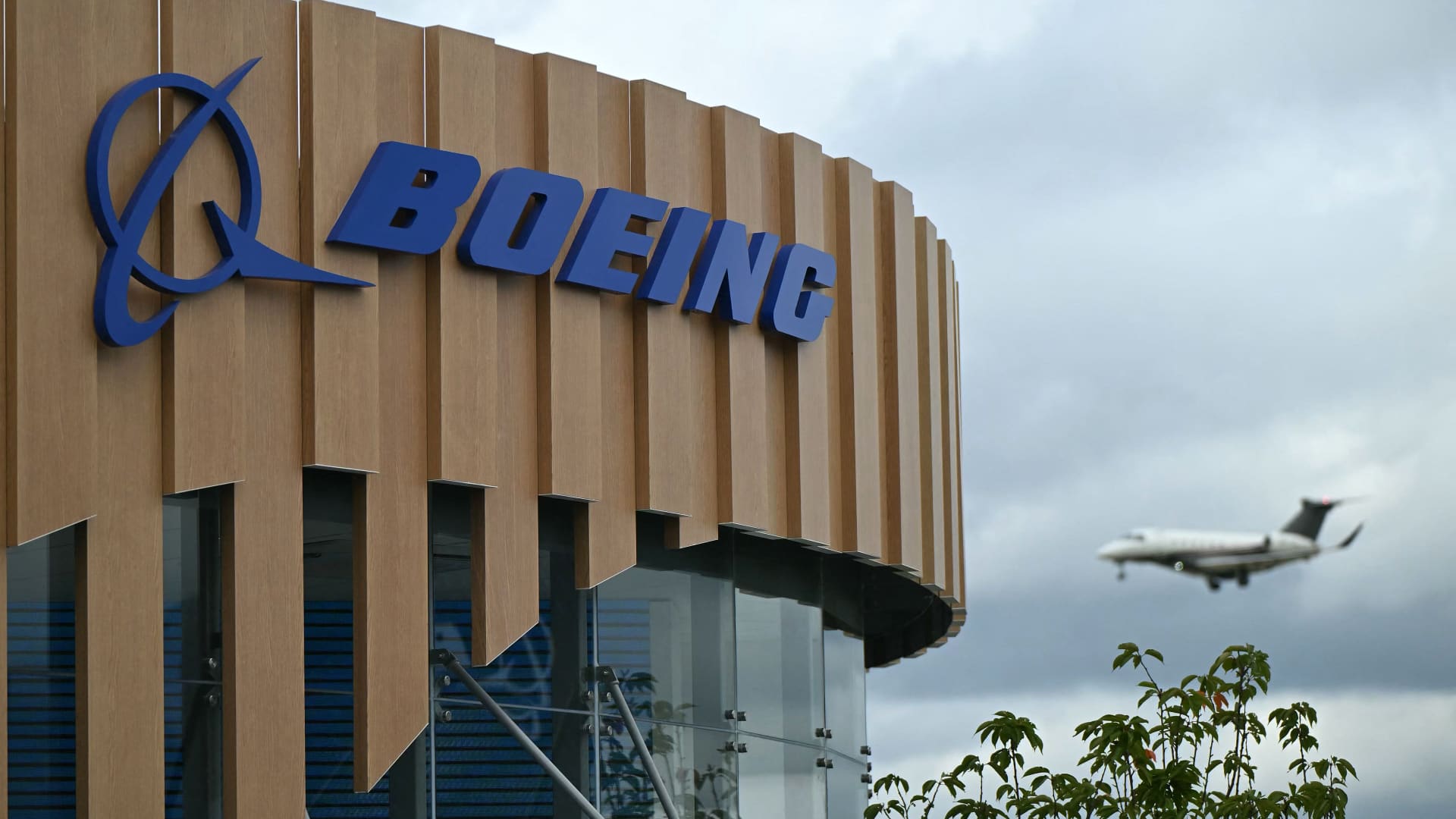Boeing reported a bigger loss and weaker revenue than analysts expected for the second quarter as both its commercial airplane and defense programs continued to struggle.
Here’s how Boeing performed in the second quarter compared with estimates compiled by LSEG:
- Loss per share: $2.90 per share adjusted versus $1.97 per share adjusted
- Revenue: $16.87 billion versus $17.23 billion
“Despite a challenging quarter, we are making substantial progress strengthening our quality management system and positioning our company for the future,” CEO Dave Calhoun said in an earnings release on Wednesday.
Boeing reported a net loss for the period of $1.44 billion, or $2.33 per share, compared with a loss of $149 million, or 25 cents per share, during the year-earlier period. On an adjusted basis, the company reported a loss of $2.90 per share, coming in nearly $1 per share under analyst expectations, according to LSEG.
Revenue for the quarter was down 15% to $16.87.
Boeing is trying to regain its footing after a door plug blowout from a nearly-new 737 Max at the start of the year reignited additional scrutiny from regulators and further slowed deliveries of new, more fuel-efficient jets to airlines.
Lower deliveries and production have pushed back some of Boeing’s financial targets.
CFO Brian West warned in May that the company would continue to burn cash in the second quarter, similar to the first, largely due to lower production and delivery rates than expected.
On Wednesday, the manufacturer reported negative free cash flow of $4.3 billion for the second quarter.
Boeing was producing its best-selling Max planes a pace in the mid-20s per month in the last few months, far from its target of 38 a month.
Stephanie Pope, CEO of Boeing’s commercial airplane unit, told reporters ahead of the Farnborough Airshow outside London earlier this month that the company is trying to make lasting changes to training and quality control, admitting that the company has disappointed customers.
We’ve impacted their business and we haven’t met the commitments and lived up to being the partner that they expect and they need us to be,” she said. “This plan is not a three-month plan,” said Pope. “I call it transformational because some of these actions will take years.”
Boeing’s other business units have also faced cost overruns and delays, like its defense unit which is building the two Boeing 747 aircraft that will serve as Air Force One, which are behind schedule.
This is breaking news. Check back for updates.

